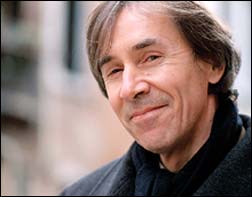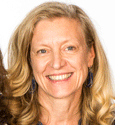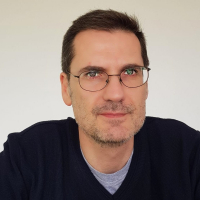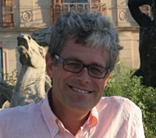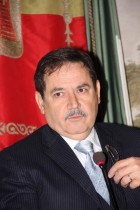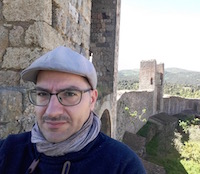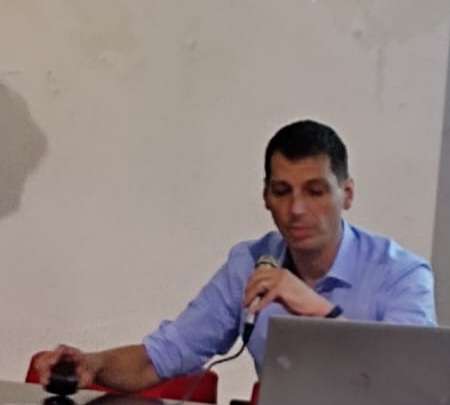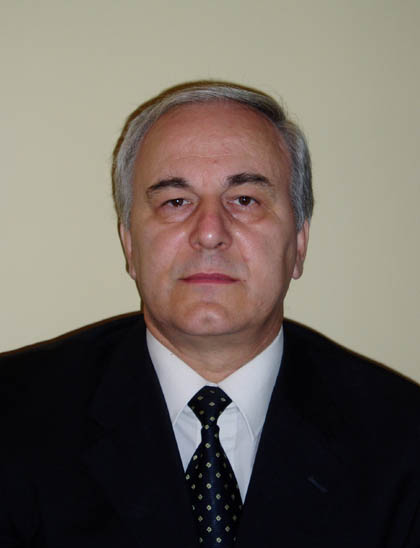Studying at the University of Verona
Here you can find information on the organisational aspects of the Programme, lecture timetables, learning activities and useful contact details for your time at the University, from enrolment to graduation.
Academic calendar
The academic calendar shows the deadlines and scheduled events that are relevant to students, teaching and technical-administrative staff of the University. Public holidays and University closures are also indicated. The academic year normally begins on 1 October each year and ends on 30 September of the following year.
Course calendar
The Academic Calendar sets out the degree programme lecture and exam timetables, as well as the relevant university closure dates..
| Period | From | To |
|---|---|---|
| Sem. IA (31.10.16 sosp.lezioni) | Oct 3, 2016 | Nov 12, 2016 |
| Sem. IB | Nov 14, 2016 | Jan 21, 2017 |
| Sem. IIA | Feb 27, 2017 | Apr 22, 2017 |
| Sem. IIB | Apr 24, 2017 | Jun 10, 2017 |
| Session | From | To |
|---|---|---|
| Sessione d'esami invernale | Jan 23, 2017 | Feb 25, 2017 |
| Sessione d'esame estiva | Jun 12, 2017 | Jul 29, 2017 |
| Sessione d'esami autunnale | Aug 21, 2017 | Sep 23, 2017 |
| Session | From | To |
|---|---|---|
| Sessione di Laurea Estiva | Jul 10, 2017 | Jul 15, 2017 |
| Sessione di Laurea Autunnale | Dec 18, 2017 | Dec 21, 2017 |
| Sessione di Laurea Invernale | Mar 23, 2018 | Mar 29, 2018 |
| Period | From | To |
|---|---|---|
| Festa di Ognissanti | Nov 1, 2016 | Nov 1, 2016 |
| Festa dell'Immacolata | Dec 8, 2016 | Dec 8, 2016 |
| Vacanze Natalizie | Dec 23, 2016 | Jan 7, 2017 |
| Vacanze Pasquali | Apr 14, 2017 | Apr 18, 2017 |
| Festa della Liberazione | Apr 25, 2017 | Apr 25, 2017 |
| Festa dei Lavoratori | May 1, 2017 | May 1, 2017 |
| Festa del Santo Patrono - San Zeno | May 21, 2017 | May 21, 2017 |
| Festa della Repubblica | Jun 2, 2017 | Jun 2, 2017 |
| Vacanze Estive | Aug 14, 2017 | Aug 19, 2017 |
Exam calendar
Exam dates and rounds are managed by the relevant Culture and Civilisation Teaching and Student Services Unit.
To view all the exam sessions available, please use the Exam dashboard on ESSE3.
If you forgot your login details or have problems logging in, please contact the relevant IT HelpDesk, or check the login details recovery web page.
Should you have any doubts or questions, please check the Enrollment FAQs
Academic staff
 bernard.aikema@univr.it (per tutti), aikemaforstudents@gmail.com (per studenti)
bernard.aikema@univr.it (per tutti), aikemaforstudents@gmail.com (per studenti)
 +39 045802 8197
+39 045802 8197
Amato Gianfranco
 gianfranco.amato@univr.it
gianfranco.amato@univr.it
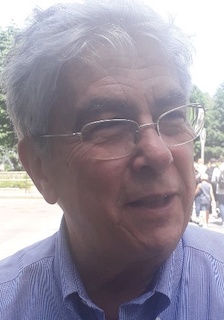
Avezzu' Guido
 guido.avezzu@univr.it
guido.avezzu@univr.it

Bassetti Massimiliano
 massimiliano.bassetti@univr.it
massimiliano.bassetti@univr.it
 045802 8376
045802 8376
 maurizio.boscaini@univr.it
maurizio.boscaini@univr.it
 vincenzo.giannotti@univr.it
vincenzo.giannotti@univr.it
 luca.leone@univr.it
luca.leone@univr.it

Mastrocinque Attilio
 attilio.mastrocinque@univr.it
attilio.mastrocinque@univr.it
 +39 045802 8386
+39 045802 8386
 marco.menato@univr.it
marco.menato@univr.it
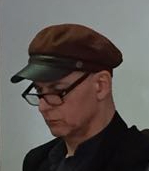
Pasini Roberto
 pasini.roberto@univr.it
pasini.roberto@univr.it
 +39 045802 8121
+39 045802 8121
 alberto.scandola@univr.it
alberto.scandola@univr.it
 daniela.zumiani@univr.it
daniela.zumiani@univr.it
Study Plan
The Study Plan includes all modules, teaching and learning activities that each student will need to undertake during their time at the University.
Please select your Study Plan based on your enrollment year.
1° Year
| Modules | Credits | TAF | SSD |
|---|
One course to be chosen among the following2° Year activated in the A.Y. 2017/2018
| Modules | Credits | TAF | SSD |
|---|
One course to be chosen among the following3 course to be chosen among the following2 course to be chosen among the followingOne course to be chosen among the following3° Year activated in the A.Y. 2018/2019
| Modules | Credits | TAF | SSD |
|---|
One course to be chosen among the followingOne course to be chosen among the following3 course to be chosen among the following| Modules | Credits | TAF | SSD |
|---|
One course to be chosen among the following| Modules | Credits | TAF | SSD |
|---|
One course to be chosen among the following3 course to be chosen among the following2 course to be chosen among the followingOne course to be chosen among the following| Modules | Credits | TAF | SSD |
|---|
One course to be chosen among the followingOne course to be chosen among the following3 course to be chosen among the following| Modules | Credits | TAF | SSD |
|---|
Legend | Type of training activity (TTA)
TAF (Type of Educational Activity) All courses and activities are classified into different types of educational activities, indicated by a letter.
Type D and Type F activities
| years | Modules | TAF | Teacher | |
|---|---|---|---|---|
| 2° | Latin Epigraphy (i) | D |
Alfredo Buonopane
(Coordinator)
|
|
| 2° | History of Medieval Architecture (i) | D |
Fabio Coden
(Coordinator)
|
|
| 2° 3° | History of the Republic of Venice (p) | D |
Federico Barbierato
(Coordinator)
|
|
| 2° 3° | European Art History (i) | D |
Bernard Jan Hendrik Aikema
(Coordinator)
|
|
| 1° 2° 3° | Castelvecchio Lectures (City Art Museums) | F |
Alessandra Zamperini
(Coordinator)
|
|
| 1° 2° 3° | San Rocco lectures (Quinzano) | F |
Alessandra Zamperini
(Coordinator)
|
|
| 1° 2° 3° | C.T.G. Lectures | F |
Alessandra Zamperini
(Coordinator)
|
|
| 1° 2° 3° | Graphical representation of archaeological evidence I | F |
Giuliana Maria Facchini
(Coordinator)
|
|
| 1° 2° 3° | Karis - I ciclo | F |
Tiziana Franco
(Coordinator)
|
|
| 1° 2° 3° | Archeology laboratory of instrumentum domesticum | F |
Giuliana Maria Facchini
(Coordinator)
|
|
| 1° 2° 3° | Museology (i) | D |
Valerio Terraroli
(Coordinator)
|
|
| years | Modules | TAF | Teacher | |
|---|---|---|---|---|
| 2° | Medieval archaeology (i) | D |
Fabio Saggioro
(Coordinator)
|
|
| 2° 3° | History of the Republic of Venice (p) | D |
Federico Barbierato
(Coordinator)
|
|
| 1° 2° 3° | Castelvecchio Lectures (City Art Museums) | F |
Alessandra Zamperini
(Coordinator)
|
|
| 1° 2° 3° | San Rocco lectures (Quinzano) | F |
Alessandra Zamperini
(Coordinator)
|
|
| 1° 2° 3° | C.T.G. Lectures | F |
Alessandra Zamperini
(Coordinator)
|
|
| 1° 2° 3° | Graphical representation of archaeological evidence I | F |
Giuliana Maria Facchini
(Coordinator)
|
|
| 1° 2° 3° | Karis - II ciclo | F |
Tiziana Franco
(Coordinator)
|
|
| 1° 2° 3° | Archeology laboratory of instrumentum domesticum | F |
Giuliana Maria Facchini
(Coordinator)
|
|
| 1° 2° 3° | How to write your dissertation | F |
Alessandro Arcangeli
(Coordinator)
|
|
| 1° 2° 3° | Tracce nascoste | F |
Monica Molteni
(Coordinator)
|
|
| years | Modules | TAF | Teacher |
|---|---|---|---|
| 1° 2° 3° | Bibliography and Librarianship (i) | D |
Marco Menato
(Coordinator)
|
| 1° 2° 3° | Classification of archaeological Finds | F |
Giuliana Maria Facchini
(Coordinator)
|
| 1° 2° 3° | Castelvecchio Lectures (City Art Museums) | F |
Alessandra Zamperini
(Coordinator)
|
| 1° 2° 3° | San Rocco lectures (Quinzano) | F |
Alessandra Zamperini
(Coordinator)
|
| 1° 2° 3° | C.T.G. Lectures | F |
Alessandra Zamperini
(Coordinator)
|
| 1° 2° 3° | Graphical representation of archaeological evidence II | F |
Giuliana Maria Facchini
(Coordinator)
|
| 1° 2° 3° | Basic laboratory of data | F |
Maurizio Boscaini
(Coordinator)
|
| 1° 2° 3° | Laboratory of photo | F |
Marco Ambrosi
(Coordinator)
|
| 1° 2° 3° | Representation and Meaning in the Female Fashion between Renaissance and Baroque | F |
Alessandra Zamperini
(Coordinator)
|
| years | Modules | TAF | Teacher |
|---|---|---|---|
| 1° 2° 3° | 1887-2017: 130 years of the Museum of Ateste | F |
Patrizia Basso
(Coordinator)
|
| 1° 2° 3° | Classification of archaeological Finds | F |
Giuliana Maria Facchini
(Coordinator)
|
| 1° 2° 3° | C.T.G. Lectures | F |
Alessandra Zamperini
(Coordinator)
|
| 1° 2° 3° | Graphical representation of archaeological evidence II | F |
Giuliana Maria Facchini
(Coordinator)
|
| 1° 2° 3° | Ephigraphy of production and distribution | F |
Alfredo Buonopane
(Coordinator)
|
| 1° 2° 3° | In Itinere: Verona and the roman roads | F |
Patrizia Basso
(Coordinator)
|
| 1° 2° 3° | Laboratory of medieval archaeology | F |
Fabio Saggioro
(Coordinator)
|
| 1° 2° 3° | Workshop of Cultural Heritage Photography | F |
Stefano Marziali
(Coordinator)
|
| 1° 2° 3° | How to write your dissertation | F |
Alessandro Arcangeli
(Coordinator)
|
| years | Modules | TAF | Teacher |
|---|---|---|---|
| 1° 2° 3° | Archaeological research on the northern part of the Civita of Tarquinia | F |
Attilio Mastrocinque
(Coordinator)
|
| 1° 2° 3° | Archaeological excavation in Aquileia | F |
Patrizia Basso
(Coordinator)
|
| 1° 2° 3° | Scavo archeologico di Bastia di San Michele di Cavaion | F |
Fabio Saggioro
(Coordinator)
|
| 1° 2° 3° | Scavo archeologico di Canossa | F |
Fabio Saggioro
(Coordinator)
|
| 1° 2° 3° | Archaeological excavation in Gazzo Veronese | F |
Patrizia Basso
(Coordinator)
|
| 1° 2° 3° | Field archaeological research in Leno Monastery | F |
Fabio Saggioro
(Coordinator)
|
| 1° 2° 3° | Field archaeological research in Piuro settlement | F |
Fabio Saggioro
(Coordinator)
|
Museology (i) (2016/2017)
Teaching code
4S01242
Teacher
Coordinator
Credits
6
Language
Italian
Scientific Disciplinary Sector (SSD)
L-ART/04 - MUSEOLOGY, ART AND RESTORATION CRITICISM
Period
Sem. IA (31.10.16 sosp.lezioni) dal Oct 3, 2016 al Nov 12, 2016.
Learning outcomes
The student should be able to acquire the fundamental elements to critically interpret the History of Collecting, History of Museums, Museology and Museography. The student should be able to analyze and confront facts, formulating lines of reasoning and, consequently, the student should develop a smart and critic use of documents, sources, collectable materials, and architectural-expositive structures of museums.
The course intends to give tools for a correct speaking ability on historic/artistic problems and critic/historic/structural analysis of a museum collection, and various professional figures in the museum management. The student should be able to use the correct glossary of the specific sector.
The student should acquire the knowledge of various development lines of art history, History of Art Criticism and History of Taste, Collectionism, Museums; the student should also be able to reinforce different kind of critical approaches, to demonstrate capacity in reinterpretation of data and obtain critic notations.
Program
The knowledge of History of Museum from Hellenistic tradition to the Twentieth century, with notions of History of Museography with the following information:
Definition of museion in the Classic Age
The collection of art objects in Roman and Medieval Culture
The Renaissance studiolo
The Wunderkammer
The royal collections and the Mannerist studiolo, the Gallery of Antiquity
The royal and noble great collection; Gallery of paintings
The discovery of Antique
The birth of museum of Neoclassical Age
The museum in Nineteenth century
Scientific museums
Museums of Decorative Arts
House-Museum
Biblioography:
Maria Teresa Fiorio, Il museo nella storia. Dallo studiolo alla raccolta pubblica, Milano, Bruno Mondadori, 2011;
Adalgisa Lugli, Museologia, Milano, Jaka Book, 1992
W. Liebenwein, Studiolo. Storia e tipologia di uno spazio culturale, a cura di C. Cieri Via, Ferrara 1988, Panini Edizioni, pp.VII-XXX, 56-135 (da Isabella d'Este a Cosimo I de' Medici)
Wunderkammer. Arte, Natura, Meraviglia ieri e oggi, catalogo della mostra a cura di L. Galli Michero e M. Mazzotta, Milano, Mazzotta, 2013, pp. 45-59
G. Belli, Il museo contemporaneo. Dell’architettura e del senso, in L’arte del XX secolo. 2000 e oltre Tendenze della contemporaneità, a cura di V. Terraroli, vol. V, Milano, ed. Skira, 2009, pp. 151-167
F. Haskell e N. Penny, L’antico nella storia del gusto, Einaudi, Torino 1981, pp. 3-22, 68-99
Examination Methods
The exam purposes should verify the learning and critic reprocessing capacities of the treated topics, texts and bibliography.
The exam contents will be over the subjects recommended during the lectures and external tours, and complete sheets over 5 museums chosen by the student.
The modalities will be oral through a conversation on the above subjects
The exam will be oral with a conversation between student and professor related to the topics of the course, the bibliography and critic texts, the external tours.
The student should also choose 5 museums (Italian, European or Extra-European) creating a short data sheets (museum history, collection, masterpieces, museographical assets, personal observation over criticalities, public services etc.) with a maximum of 3 folders (6000 characters with blank spaces) that must be sent to the professor within 15 days before the exam. During the oral test one of the sheets will be chosen.
The evatuation is in 30/30.
Career prospects
Module/Programme news
News for students
There you will find information, resources and services useful during your time at the University (Student’s exam record, your study plan on ESSE3, Distance Learning courses, university email account, office forms, administrative procedures, etc.). You can log into MyUnivr with your GIA login details: only in this way will you be able to receive notification of all the notices from your teachers and your secretariat via email and soon also via the Univr app.
Graduation
List of theses and work experience proposals
| theses proposals | Research area |
|---|---|
| Ambiti di tesi | Art & Architecture - Art & Architecture |
| Stage | Research area |
|---|---|
| Lavorare in archivio | Various topics |
